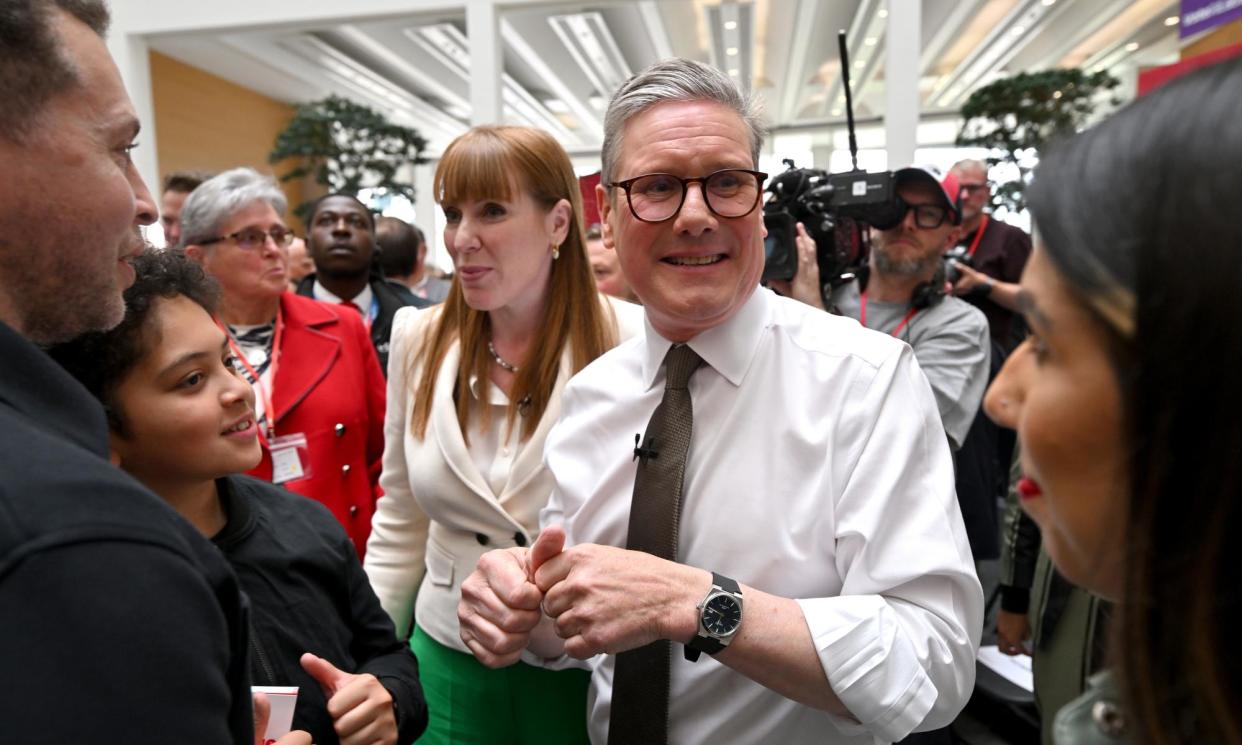Campaigners hope Labour will scrap two-child benefit cap once in No 10

Senior Labour figures have been crystal clear in the past about the two-child benefit limit, with Angela Rayner saying it was “obscene and inhumane” and Jonathan Ashworth calling it “heinous”.
Yet, as expected, Keir Starmer’s safety-first manifesto lacked any promise to reverse it, and shadow ministers have been wheeled out to underline the need to make “tough choices” and avoid unfunded promises. Rayner has said Labour has to “prioritise”.
The absence of any pledge to scrap the two-child limit is perhaps the most glaring consequence of Starmer and Rachel Reeves’s determination to offer the Tories the smallest possible target on tax and spend.
Rishi Sunak’s flailing party has been undeterred, accusing Starmer of planning to slap £2,000 worth of taxes on every household – notwithstanding the fact that the Institute for Fiscal Studies called the tax increases in Labour’s manifesto “tiny, going on trivial”.
With the polls pointing to a convincing Labour victory, anti-poverty campaigners are now turning their minds to how they can best influence the party after the election.
The two-child limit is such a clearcut case of bad policy, it will be an early target for charities and thinktanks hoping to nudge Labour to live up to its historical values.
The former prime minister Gordon Brown has worked consistently to keep the scourge of child poverty and the threadbare welfare safety net in the public eye, and is unlikely to relent when his own party is in power.
Privately many campaigners are convinced Starmer and Reeves will scrap the limit once they are safely in Downing Street and can set the narrative themselves, free from Tory electioneering.
Labour’s manifesto promises an “ambitious” strategy to reduce child poverty and a review of universal credit, “so that it makes work pay and tackles poverty”.
Most experts looking at these aims would point to ending the two-child limit as an obvious first step, given how directly it contributes to child poverty (and fails to boost work incentives).
Thinktanks calling for the cap to be scrapped include the Resolution Foundation and the New Economics Foundation – both of whose erstwhile directors, Torsten Bell and Miatta Fahnbulleh respectively, are now standing for election as Labour MPs.
They are likely to be far from alone in hoping to see the punitive policy go.
Labour’s hard-nosed campaign chief, Pat McFadden, appeared to hint there could be more to come in government, when he was grilled about the issue last week.
Pointing to the record of Brown, McFadden said: “I remember when he was shadow chancellor in the run-up to the 1997 election, and he was very careful about what to promise and he was right to be careful.
“But I also remember another thing: when he became chancellor and he had the power to change things, he had a fantastic record on child poverty. And we share the ambition when elected to attack child poverty and do more about it.”
Anti-poverty campaigners – including Brown himself, no doubt – will be watching closely to see how far that ambition carries Labour in government, beyond the specific promises set out last week.

 Yahoo News
Yahoo News 
